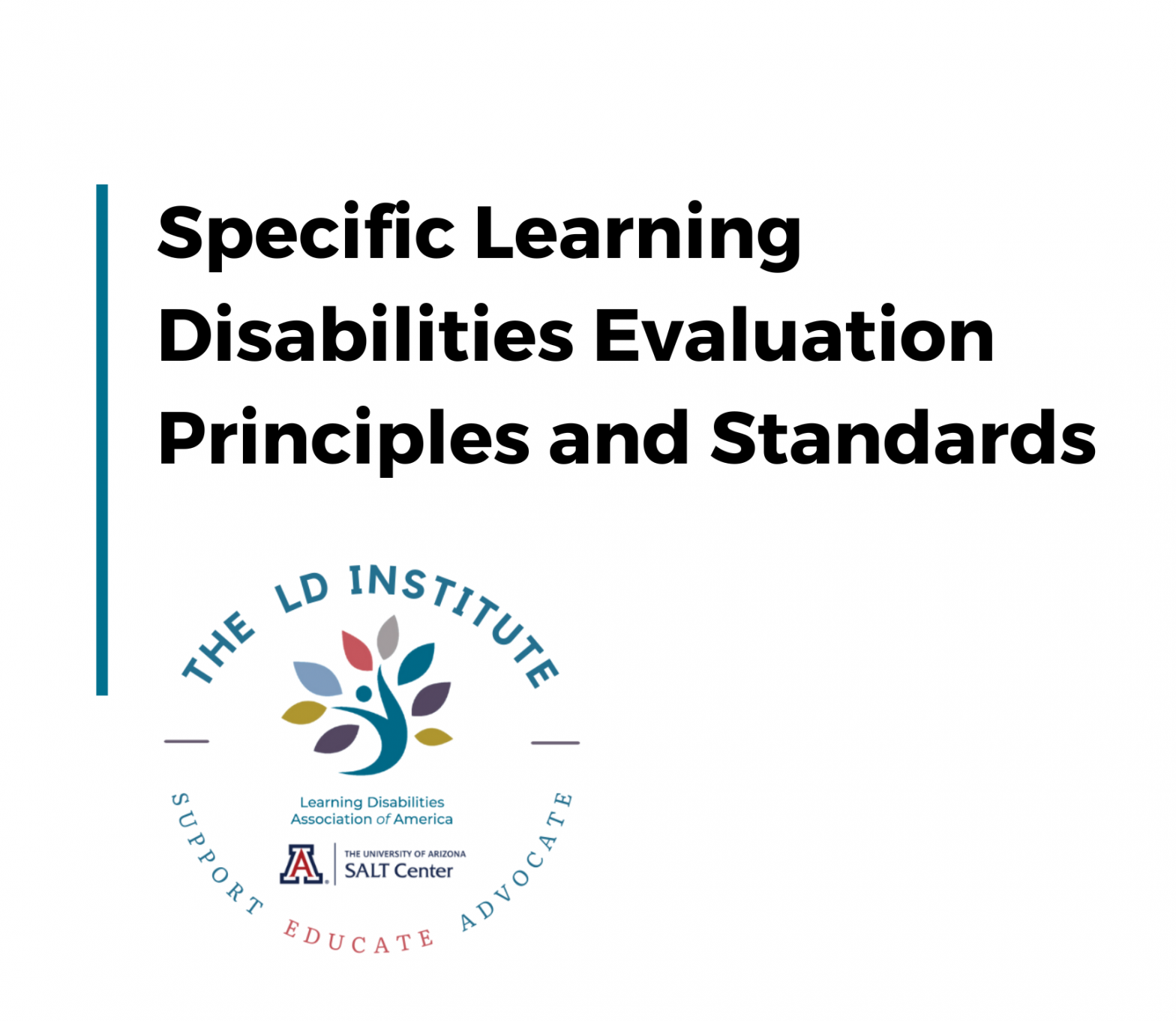The Learning Disabilities Association of America (LDA) announces the publication of a groundbreaking research paper titled “Specific Learning Disabilities Evaluation Principles and Standards.” LDA and an interdisciplinary team of researchers and practitioners partnered to develop new SLD Evaluation Principles and Standards in response to alarming achievement gaps between students with learning disabilities and their non-disabled peers.
The purpose of these standards is to guide best practices for the evaluation and identification of specific learning disabilities. The standards will guide professionals in developing a comprehensive evaluation and written report that describes the nature of the specific learning disability, the area and levels of impairment, and specific considerations for practitioners to develop individualized interventions designed to meet the unique academic, linguistic, social, emotional, and behavioral needs of the student.
“The LDA SLD Evaluation Principles and Standards represent an interdisciplinary and international research-to-practice lens, to provide the LD field guidance in implementing a comprehensive whole-child approach to the SLD evaluation connected to informed individualized instruction/intervention for struggling learners,” said Dr. David Allsop, a co-author of the research paper.
The SLD Evaluation is guided by seven foundational principles; the SLD Evaluation is 1) interdisciplinary, 2) research-informed, 3) consequently valid, 4) dynamic and iterative, 5) whole-child focused, 6) strengths-based, and 7) universally benevolent. LDA believes these principles serve as a foundation for establishing a common ethos among stakeholders with respect to the SLD evaluation and its connection to practice.
Dr. Elsa Cardenas-Hagan, one of the authors of the research paper, stated “The LDA Assessment Standards serve as a roadmap for accurate diagnosis of learning disabilities, among all students including English learners/Emergent Bilinguals.”
This research paper serves as a valuable resource for educators, psychologists, policymakers, and anyone interested in enhancing the quality of education and support for individuals with specific learning disabilities.



